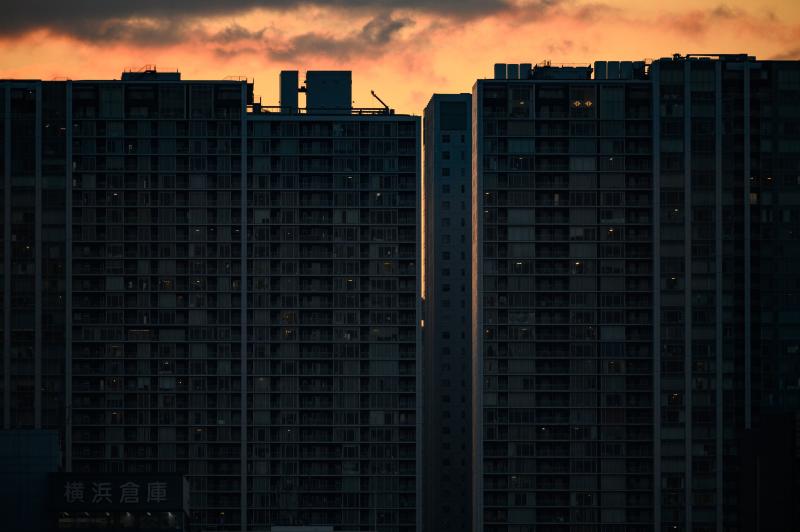Coronavirus: Concerns over domestic violence rise amid stay-home measures in Japan
Sign up now: Get insights on Asia's fast-moving developments

Apartment buildings in Japan on March 6, 2020.
PHOTO: AFP
A night of conversation at home, over dinner and alcohol, turned tragic on April 5 for a Tokyo couple who had followed advice not to go out owing to the coronavirus outbreak.
A toxic mix of factors - inebriation from 5½ hours of drinks, the stress of spending hours cooped up at home, and mounting pressure over household finances - led husband Kazuo Makino, 59, to snap when his wife Miki, 57, told him that her income would be hit by the pandemic.
"We had an argument over our income and I lost control of myself," Makino, who was arrested, reportedly told investigators. He admitted to striking her, causing a fall that led to her death from a head injury.
In another case, Japanese actor Makoto Sakamoto, 42, who has appeared in drama serials like Liar Game (2007), was arrested for allegedly assaulting his wife and mother-in-law.
The women were not injured, and he has denied attacking them.
These cases epitomise concerns over domestic violence in Japan - and around the world - as people are asked to stay home to slam the brakes on the spread of the coronavirus.
The restrictions on movement have led to increasing social and economic strain, and United Nations Secretary-General Antonio Guterres last week called on governments to include protection for women and girls as a key part of Covid-19 countermeasures.
"For many women and girls, the threat looms largest where they should be safest: in their own homes," he said, noting a "horrifying global surge in domestic violence".
He suggested safe ways to protect victims from their abusers, such as keeping shelters open and setting up emergency warning systems in pharmacies and supermarkets.
The UN said calls to helplines have trebled in China and doubled in Malaysia and Lebanon compared with the same period last year.
No immediate figures were available for Japan, with Prime Minister Shinzo Abe saying last Tuesday that he "has not received any reports or indications" that domestic violence was surging in the country.
But he vowed to strengthen support for shelters for abuse victims, when asked about the threat at a news conference announcing state-of-emergency measures covering seven prefectures.
"We need to be vigilant, and we want all victims to report any cases of domestic or child abuse immediately," he said.
Already, cases of domestic violence have risen for 16 straight years and set another new high last year, National Police Agency data showed last month.
The police launched probes into 9,161 incidents last year, up by 73 from 2018. Nine in 10 involved assault, while there were 110 cases of attempted murder and three murder cases.
Meanwhile, there were 82,207 consultations for domestic violence in total last year, an increase of 4,725 cases.
The rise in cases even without an unfurling pandemic is why support groups like the All Japan Women's Shelter Network are concerned over the potential threat.
Associate Professor Chisato Kitanaka of Hiroshima University, who heads the network, wrote to the Cabinet Office on March 31 saying: "Many consultation centres in local governments have cancelled in-person counselling, making it difficult to provide support at a time when domestic violence is worsening."
The letter cited one victim as saying that her husband, who is telecommuting, "became stressed and began to physically assault me and our children".
Prof Kitanaka said the threat is made worse by how victims now have few avenues to turn to if consultation centres and shelters are closed, and hardly any chances to seek help if they are at home all the time with their assailants.
An online petition by social worker Maki Sato, calling for Tokyo Governor Yuriko Koike to take urgent measures, drew 30,000 signatures within a week. "We must not overlook the fact that home is not a safe place for many people," said the 36-year-old.


